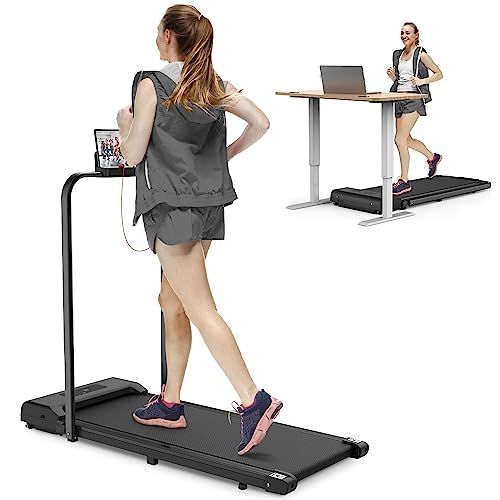Why Is Tread Mill So Famous?

본문
The Treadmill: A Comprehensive Guide to Understanding and Utilizing This Fitness Machine
Treadmills are a staple in health clubs and homes alike, functioning as an effective tool for cardiovascular workout. With their versatility and range of functions, treadmills accommodate users of all physical fitness levels. This short article explores the ins and outs of treadmills-- covering their benefits, types, usage suggestions, maintenance, and a lot more.
The Benefits of Using a Treadmill
Making use of a treadmill can provide numerous health benefits, making it a popular option among fitness enthusiasts. Below are some key benefits:
Cardiovascular Health: Regular treadmill usage can enhance heart health by increasing aerobic capability and cardiovascular endurance.
Weight Management: Treadmills allow users to burn calories efficiently, assisting in weight-loss or management.
Convenience: With the capability to exercise inside, treadmills remove environmental barriers, like weather and time constraints.
Versatility: Users can control speed, incline, and workout duration, enabling them to customize their workout regimen to fit their needs.
Joint Impact: Many modern treadmills use cushioning, which can minimize the influence on joints compared to running on hard surface areas.
This extensive guide takes a look at the different types of treadmills and what functions to think about when purchasing one.
Types of Treadmills
Picking the ideal kind of treadmill depends upon specific fitness objectives, budget, and offered space. Here are the various varieties:
1. Manual Treadmills
- Meaning: These treadmills run without motors; users power the belt through their motions.
- Advantages: Typically more inexpensive and energy-efficient.
- Drawbacks: Limited features and less stability compared to motorized options.
2. Motorized Treadmills
- Meaning: Equipped with motors to control belt speed and incline.
- Advantages: Versatile includes like preset programs and digital display screens.
- Downsides: More expensive and need electrical outlets.
3. Folding Treadmills
- Meaning: Treadmills that can be collapsed to conserve space when not in usage.
- Benefits: Ideal for those with restricted area.
- Drawbacks: May not be as sturdy, depending on the design.
4. Commercial Treadmills
- Meaning: High-quality, sturdy machines designed for frequent usage in fitness centers.
- Advantages: Built to stand up to extensive workouts with features matched for diverse training needs.
- Downsides: Generally more expensive and larger.
5. Smart Treadmills
- Meaning: Treadmills equipped with clever technology that tracks exercises and supplies virtual training.
- Benefits: Interactive features improve the user experience.
- Drawbacks: Higher costs and prospective for technical issues.
Functions to Consider When Buying a Treadmill
When buying a treadmill, it's essential to assess its functions according to individual needs and spending plan. Important functions consist of:
Motor Power: Measured in horsepower (HP); a motor in between 2.0-- 3.0 HP appropriates for the majority of users.
Running Surface: The belt size ought to accommodate your stride. A surface of at least 20" x 55" is generally recommended.
Slope Options: Look for a treadmill offering various slope levels to replicate outdoor running and increase exercise strength.
Weight Capacity: Ensure the treadmill can support the user's weight; most can accommodate weights in between 250 lbs and 400 lbs.
Cushioning: Good quality cushioning effects walking or running convenience and can assist prevent injuries.
Foldability: If space is a concern, consider a treadmill that can be folded.
Innovation: Features like heart rate displays, workout programs, and Bluetooth connectivity can boost the user experience.
Table: Key Features and Considerations
| Feature | Significance |
|---|---|
| Motor Power | Important for consistent performance and user weight capacity. |
| Running Surface | Effects user convenience and stride length; larger surface areas are much better for taller individuals. |
| Slope Options | Allows diverse workouts and targets various muscle groups. |
| Weight Capacity | Important for safety and durability; pick a model that supports your weight. |
| Cushioning | Decreases joint impact and makes workouts more comfortable. |
| Foldability | Crucial for users with limited area. |
| Innovation | Boosts exercise experience and can provide important tracking information. |
Tips for Effective Treadmill Workouts
To take full advantage of the benefits of using a treadmill, think about the following suggestions:
Warm-Up and Cool-Down: Always start with a 5-10 minute warm-up and surface with a cool-down to avoid injury.
Differ Your Workouts: Mix walking, jogging, and going to keep things fascinating and work different muscle groups.
Include Incline: Use slope settings to challenge yourself and increase calorie burn.
Stay Hydrated: Keep water nearby to stay hydrated throughout your exercises.
Listen to Your Body: Pay attention to any pain or tiredness; rest when required.
Treadmill Maintenance Tips
To make sure durability and ideal performance of a treadmill, regular upkeep is vital. Key upkeep practices consist of:
Lubrication: Frequently oil the running belt for smoother operation.
Cleaning: Wipe down the machine after each use to prevent dust and sweat accumulation.
Tightening: Regularly examine and tighten up loose bolts or screws.
Examine the Belt Alignment: Ensure the belt is lined up properly, adjusting as required for even use.
Regularly Asked Questions (FAQs)
1. How often should I utilize a treadmill for weight loss?
Using a treadmill for at least 150 minutes of moderate-intensity aerobic workout per week can add to weight-loss.
2. Can I stroll on a treadmill every day?
Yes, walking on a treadmill daily can be beneficial; however, including day of rest is advisable to avoid overuse injuries.
3. What should I wear when utilizing a treadmill?
Decide for comfortable, moisture-wicking clothing and helpful footwear to boost your exercise experience.
4. Is it much better to stroll or work on a treadmill?
Both walking and running deal unique advantages; the best option depends upon your fitness level, goals, and individual preference.

5. Are there particular treadmills created for small areas?
Yes, folding treadmills and compact designs appropriate for small areas. Constantly inspect measurements before buying.
The treadmill stays a versatile and commonly utilized piece of physical fitness equipment. Its mix of convenience, versatility, and efficiency makes it suitable for users ranging from beginners to experienced athletes. By comprehending the various types and features, as well as incorporating varied workouts, users can take full advantage of the advantages of their Treadmill Home routine. Whether for cardiovascular training, weight reduction, or merely keeping an active lifestyle, treadmills supply a trustworthy avenue for achieving physical fitness objectives.


댓글목록0
댓글 포인트 안내